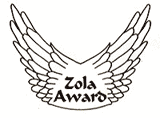- The average traditionally-published book takes 18 months to hit the shelves. The countdown starts from when the book is sold, so not included are the months and years you took to find an agent and for the agent to sell the book. Of course, if you're not a first-time author, you can just estimate 18 months. The long lead time consists of editing, marketing, galley reviews, publicity, sales, etc. At gunpoint a book can be gotten out in under a year, but such "crash" books are few and far between.
- The Editors Panel rejected the notion that editors no longer edit. One said specifically, "First-time authors need a lot of work." Not for grammar, presumably, but for storyline. I would agree with this. When I considered whether MBC could be cut down from 130,000 words (I got it to 127,000 or so), I would have loved a professional opinion.
- Traditional publishing remains "very incestuous." Everyone knows each other; everyone talks. Too bad for me, since my son's swim meet meant I was a no-show for my speed-pitching appointment with five agents and then had to try to cancel a later one-on-one. I'll be known as "the flaky one." But hey--my son will still be talking to me ten years from now.
- It's not impossible to go from self-published to traditionally-published, especially if you're talking about a non-fiction work. With fiction, unless you sold bazillion copies out of your trunk or electronically, publishers might be more interested in what else you have. Your next project, which they can then sell to that base you knocked yourself out building.
- A unique, fresh voice. Authentic and age-appropriate. Avoid too much slang and use profanity as a "spice" only when necessary.
- Memorable, dynamic characters whose lives can be imagined going on after the book ends. They don't have to be likeable, necessarily, but the reader has to be able to connect.
- Coherent and satisfying narrative structure. Everything in the story is there for a reason, and the reader is carried forward from the very beginning. Imagine arriving at a party "fashionably late." That's when your reader should come into the story
- The universal in the idiosyncratic. Every story has already been told. What is your unique angle?
- Literary voice with commercial conception. Has to be pitchable. What if you thought you were an ordinary, neglected boy, but then you found out you had magical powers and people hoped you would one day defeat the most evil wizard of all time?
Lowlight. Getting to the end of my cougar-cruise pitch during my one-and-only not-missed agent appointment, only to have her say, "Well, I do books with a male protagonist." WTH??? And why didn't I have that in my notes? (When I related this incident to another attendee, she said, not unkindly, "Oh yes, I remember her saying that." Crap! Did the agent drop this crucial bit of info when I was playing Words with Friends???)
Highlight #1. My fellow writers and would-be authors. Met one couple that told me about a psychopathic Maltese (i.e., man from Malta) with multiple-personality disorder who dated their friend. Me: "How did she find out he had multiple-personality disorder?" Them: "He kept asking her, 'Do you want to meet Vlad?'" I am so using that in a book.
Highlight #2. Having my children's picture book MIA AND THE MAGIC CUPCAKES win the First Place Zola Award in Children's Picture Book or Chapter Book! A total surprise, and, with the accompanying $600 check, a welcome one. Go, Mia!

Just saw the boys got 3rd in both of the relays. They really rock! So proud of them. Worth missing the agent speed dating. 18 months to the shelf. Almost as long as an elephant carries her baby. Sorry I missed connecting with you on the airbed. If you need it while were gone, send me an email and I'll have my neighbor with a key leave it on my porch.
ReplyDelete